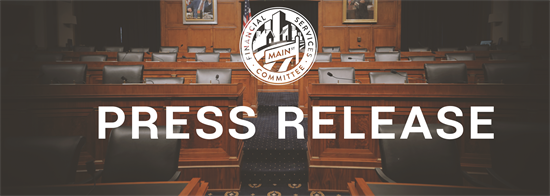House Passes Bipartisan Small Business Regulatory Relief Bills
Washington,
May 23, 2016
WASHINGTON – The House on Monday passed two bipartisan bills designed to lessen regulatory burdens on small businesses. “I believe most of us would agree that our economy works better for all Americans when small businesses can focus on creating jobs rather than navigating bureaucratic red tape,” said Financial Services Committee Chairman Jeb Hensarling (R-TX). Both bills had previously passed the Financial Services Committee with strong bipartisan support. Below is information about the bills. H.R. 4139, the Fostering Innovation Act Sponsors: Reps. Kyrsten Sinema (D-AZ) and Michael Fitzpatrick (R-PA) The Fostering Innovation Act extends for five years the temporary auditing exemption for emerging growth companies to comply with Section 404(b) of the Sarbanes-Oxley Act. The significant compliance costs associated with Section 404(b) disproportionately affect smaller public companies, diverting resources from their growth and harming the ability of these firms to compete against larger companies and foreign competitors. Many small companies generate insufficient revenue to absorb the significant costs of Section 404(b) compliance in their sixth year of being a public company. H.R. 4139 provides these small public companies and additional “on-ramp” for compliance. H.R. 4139 passed the House today by voice vote. The bill passed the Financial Services Committee on March 2, 2016 with a 42-15 vote. H.R. 2121, the SAFE Transitional Licensing Act of 2015 Sponsor: Rep. Steve Stivers (R-OH) Under H.R. 2121, mortgage loan originators would be given a grace period to obtain a new license when they switch jobs so that they can continue to originate loans. The SAFE Mortgage Licensing Act requires loan originators to register in a nationwide system. If the originator works for a nonbank lender, he or she also has to obtain a state license. Under H.R. 2121, a registered originator who moves to another state or switches from a depository institution to a nonbank lender could continue originating loans for as long as 120 days while applying for a new license. Without the bill, “a loan officer who moves from a federally-insured institution to a nonbank lender must sit on their hands for weeks, even months, while they meet the SAFE Act’s licensing and testing requirements,” said Rep. Stivers. H.R. 2121 passed the House today by voice vote. The bill passed the Financial Services Committee on March 2, 2016 by a vote of 56-0. |


